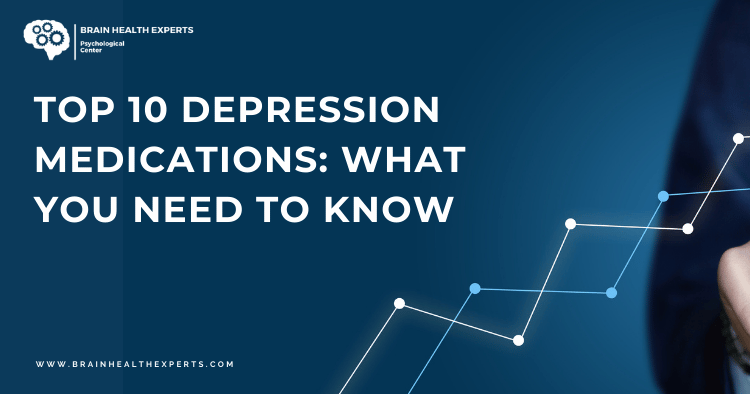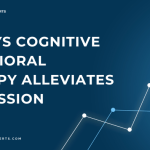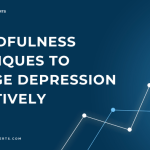Table of Contents
- Understanding Depression
- The Role of Medication in Treating Depression
- Top 10 Depression Medications
- 1. Selective Serotonin Reuptake Inhibitors (SSRIs)
- 2. Serotonin-Norepinephrine Reuptake Inhibitors (SNRIs)
- 3. Tricyclic Antidepressants (TCAs)
- 4. Monoamine Oxidase Inhibitors (MAOIs)
- 5. Atypical Antidepressants
- 6. Ketamine and Esketamine
- 7. Bupropion
- 8. Vortioxetine
- 9. Agomelatine
- 10. St. John’s Wort
- FAQs About Depression Medications
- Conclusion
Understanding Depression
Depression is a complex mental health condition that goes beyond mere sadness. It affects millions globally, manifesting in various symptoms including persistent sadness, loss of interest, fatigue, and alterations in appetite and sleep patterns. The World Health Organization reports that over 264 million people suffer from depression worldwide. Understanding its complexities is crucial for effective treatment, which may involve therapy, medication, and lifestyle changes.
Learn more about depression from the Mayo Clinic.
The Role of Medication in Treating Depression
Medication can be a cornerstone in managing depression, alleviating symptoms and enhancing quality of life. While therapy and lifestyle modifications are vital components of a comprehensive treatment plan, medications address neurological imbalances that contribute to depressive symptoms. It’s essential to collaborate with a healthcare professional to determine the most suitable approach tailored to individual needs.
Top 10 Depression Medications
Here’s an updated look at ten commonly prescribed medications for depression, including their uses, benefits, and potential side effects.
1. Selective Serotonin Reuptake Inhibitors (SSRIs)
SSRIs are typically the first-line treatment for depression, working to increase serotonin levels in the brain. Common SSRIs include:
- Fluoxetine (Prozac)
- Sertraline (Zoloft)
- Citalopram (Celexa)
Benefits: Generally well-tolerated with a lower risk of side effects compared to older antidepressants.
Potential Side Effects: Nausea, insomnia, sexual dysfunction.
2. Serotonin-Norepinephrine Reuptake Inhibitors (SNRIs)
SNRIs increase serotonin and norepinephrine levels and are often prescribed when SSRIs are ineffective. Examples include:
- Venlafaxine (Effexor XR)
- Duloxetine (Cymbalta)
Benefits: Effective for both depression and anxiety and may help with chronic pain.
Potential Side Effects: Increased blood pressure, nausea, dizziness.
3. Tricyclic Antidepressants (TCAs)
Though older, TCAs can effectively treat severe depression by impacting multiple neurotransmitters. Examples include:
- Amitriptyline
- Nortriptyline (Pamelor)
Benefits: Highly effective for severe depression.
Potential Side Effects: Weight gain, dry mouth, constipation.
4. Monoamine Oxidase Inhibitors (MAOIs)
MAOIs are less commonly prescribed due to dietary restrictions and potential interactions. They work by preventing the breakdown of neurotransmitters. Examples include:
- Phenelzine (Nardil)
- Tranylcypromine (Parnate)
Benefits: Effective for atypical depression.
Potential Side Effects: Hypertensive crisis if combined with certain foods.
5. Atypical Antidepressants
These medications do not fit into the other categories and work through various mechanisms. Examples include:
- Mirtazapine (Remeron)
- Trazodone
Benefits: Useful for insomnia and may increase appetite.
Potential Side Effects: Sedation, weight gain.
6. Ketamine and Esketamine
Ketamine has emerged as a rapid-acting treatment for depression, particularly for treatment-resistant cases. Esketamine is available as a nasal spray.
Benefits: Fast relief for treatment-resistant depression.
Potential Side Effects: Dissociation, increased blood pressure.
7. Bupropion
Bupropion (Wellbutrin) primarily affects dopamine and norepinephrine levels. It is used for major depressive disorder and seasonal affective disorder.
Benefits: Lower risk of sexual side effects; may assist with smoking cessation.
Potential Side Effects: Insomnia, dry mouth, increased seizure risk.
8. Vortioxetine
Vortioxetine (Brintellix) works on multiple serotonin receptors, offering a unique option for depression treatment.
Benefits: May enhance cognitive function in depressed patients.
Potential Side Effects: Nausea, diarrhea, sexual side effects.
9. Agomelatine
Agomelatine (Valdoxan) mimics melatonin, promoting healthy sleep patterns.
Benefits: Improves sleep quality with minimal sexual side effects.
Potential Side Effects: Liver enzyme alterations, gastrointestinal issues.
10. St. John’s Wort
This herbal remedy has been traditionally used for mild to moderate depression and is widely available over the counter.
Benefits: Potentially effective for mild depression with fewer side effects than prescription medications.
Potential Side Effects: Photosensitivity, gastrointestinal issues, interactions with other medications.
FAQs About Depression Medications
Q: How long does it take for depression medication to work?
A: Generally, it may take 4-6 weeks to feel the full effects. Some individuals might notice improvements sooner.
“Patience is key when starting a new medication. It takes time for the body to adjust.”
Q: Can I stop taking my medication abruptly?
A: No, stopping suddenly can lead to withdrawal symptoms. Always consult your doctor before any changes to your regimen.
Q: Are there natural alternatives to medication?
A: Yes, therapies, exercise, and lifestyle adjustments can significantly help. Supplements like omega-3 fatty acids or vitamin D might also provide relief, but always consult a healthcare provider.
Q: How do I know which medication is right for me?
A: The appropriate medication often depends on individual symptoms, medical history, and co-existing conditions. A healthcare professional can guide this decision.
Conclusion
Navigating the landscape of depression medications can be daunting, but understanding your options is crucial. Whether you’re beginning treatment or exploring alternatives, maintaining open communication with your healthcare provider is vital.
“Finding the right medication might take time, and it’s perfectly acceptable to seek support from friends, family, or mental health professionals.”
For more insights on mental health and to explore effective coping strategies, consider visiting our articles on positive thinking techniques such as 10 Powerful Techniques to Cultivate a Positive Mindset or 10 Effective Strategies for Building Resilience in Mental Health. Your mental health journey is important, and you’re not alone!





